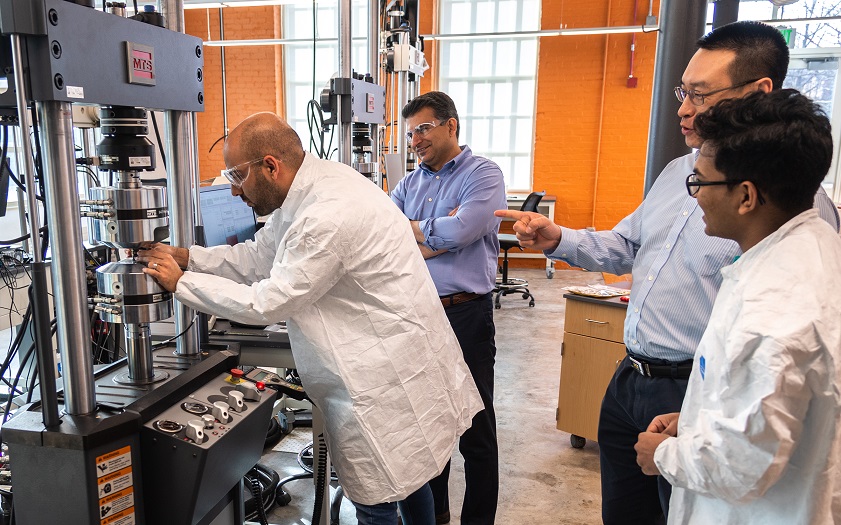Auburn University ranks among top U.S. research institutions in National Science Foundation survey
Auburn University is ranked in the top 11% of U.S. research institutions, coming in at No. 100 among 915 universities, according to the National Science Foundation’s recent Higher Education Research and Development, or HERD, Survey. Among public universities, Auburn is ranked No. 67 out of 415 institutions.
“Auburn’s ranking among the nation’s top 100 research institutions is a significant accomplishment,” said James Weyhenmeyer, Auburn vice president for Research and Economic Development. “Our innovative researchers have remained committed to engaging in impactful research even during the challenges of a global pandemic. Their dedication and ingenuity are reflected in Auburn’s rise in the rankings.”
The annual survey, compiled from fiscal year 2020 research expenditures, saw Auburn climb five spots from the previous year.
During the five-year period of 2016-20, Auburn’s annual research expenditures increased from $152.4 million to $255.3 million, resulting in a rankings jump of 26 places. Among Southeastern Conference universities, Auburn had the highest percentage increase in research expenditures over that time period: a jump of 67.5%.
For universities without a medical school, Auburn ranked No. 61 nationally and No. 1 in the state. Auburn also was highly ranked nationally in a number of specific fields of research, including No. 54 in engineering, No. 54 in mathematics and statistics and No. 93 in physical sciences, all tops in the state.
A hallmark of Auburn’s research is the diversity of its funded projects. Highlights include:
- The Samuel Ginn College of Engineering’s National Center for Additive Manufacturing Excellence is working with NASA under a $14.6 million contract to develop additive manufacturing processes for improving the performance of liquid rocket engines. The center also is using $6 million from the Federal Aviation Administration to advance the use of additive manufacturing in commercial aviation.
- The state of Alabama recently awarded Auburn $1.6 million for four sustainability projects: advanced jet and diesel fuels from woody biomass grown in the state and from waste plastics; biotechnology that enables conversion of organic wastes into bioplastics; 3D printable polymer smart machines, such as actuators, sensors and energy harvesters; and a new, high-value aquaculture feed binder made from soybean hulls.
- The National Institutes of Health recently awarded Auburn a $1.5 million Research Training Initiative for Student Enhancement grant to broaden participation in the sciences for traditionally underrepresented students.
In addition to the high ranking in the NSF HERD Survey, Auburn is recognized by the Carnegie Classification of Institutions of Higher Education as a top-level, or R1, university with “very high research activity.”

Auburn University is ranked in the top 11% of U.S. research institutions, coming in at No. 100 among 915 universities, according to the National Science Foundation’s recent Higher Education Research and Development, or HERD, Survey. Pictured, scientists in Auburn’s National Center for Additive Manufacturing Excellence conduct fatigue testing on an additively manufactured part.
Categories: Energy & the Environment, Engineering, Auburn In the News, Manufacturing, Advanced Systems, Agriculture
Back to Articles




